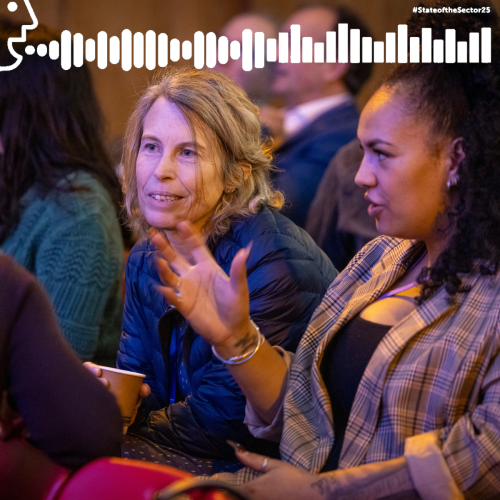This is a guest blog from Lindsay Sutherland- Research & Policy Officer at i-HOP. Lindsay writes about their latest resource, a practitioners' guide to supporting the families of people in the criminal justice system, now available to download from i-HOP for free following its launch in Birmingham last year.
Support for ‘hidden’ children and families
Some time ago, when I first came across the work of i-HOP, I found myself to be one of the many professionals shocked by the statistics around the number of children affected by parental imprisonment and the many ways it impacts on their outcomes. As a national information service funded by the Department for Education, i-HOP has supported and trained thousands of professionals to consider these children’s needs, and we continue to witness professionals’ surprise when they first become aware of the scale of this issue.
Professionals in fostering teams, healthcare services, schools, youth clubs, Children’s Centres, and in many organisations across the voluntary sector are all working with the children of people in the justice system. They may not know it as this group remains largely hidden. Stigma and isolation perpetuates the invisibility of the 200,000 children who see a parent go to prison each year. They are still not routinely identified or offered support. Yet research increasingly demonstrates the risks they face: mental ill health, poverty, negative school experiences, and the often highlighted risk of them offending themselves.
With a lack of widespread training, inconsistent policy and strategic guidelines across local authorities, and limited provision of targeted services for these families across the nation, i-HOP offers a service for multi-agency professionals working with children of people who have offended. Supporting these children is every practitioner’s business, but professionals need the knowledge, tools and guidance necessary to provide effective interventions for this potentially vulnerable group living in extremely varied circumstances.
A practitioners’ guide
Our brand new resource is a comprehensive guide for all frontline practitioners working directly with children and families. Supporting children and families affected by a family member’s offending – A Practitioner’s Guide is the culmination of hundreds of interactions i-HOP has had with professionals over the years on our training programmes and professionals’ helpline, and currently through our website, as well as Barnardo’s 20 years’ experience providing targeted support to the families of people in the justice system.
At the Guide’s launch we were delighted to have the support of the CEO of Clinks, Anne Fox, who delivered a keynote speech on the Farmer Review and the importance of maintaining family ties. Lord Farmer, working in partnership with Clinks, was commissioned to chair an independent review to investigate how supporting men in prison in England and Wales to engage with their families can reduce reoffending and assist in addressing intergenerational crime. The Farmer Review is due to be published by the Ministry of Justice in the near future. Anne’s speech was followed by a young person who told delegates the story of her brother’s imprisonment; its impact on her and her family, and what the services did that helped her. The power of her presentation reminded us all how important it is to recognise and respond to these families’ needs and keep young people’s voices and wishes central to our work.
Built on key practice principles - children’s rights, safeguarding, understanding the criminal justice system, and multi-agency working - the new Guide is a constructive companion for practitioners. It covers key research and theory about the impact of offending on the whole family, and aims to equip practitioners to intervene. Substantial categorised resources are listed throughout the Guide, and practice tips highlight approaches that Barnardo’s experience has shown us work.
The Guide is a response to many of the questions we commonly hear from family practitioners and so it mirrors what we know are some of families’ key needs such as:
- how to talk to children about family member offending
- exploring feelings with children and providing age-appropriate information about offending
- preparing children for prison visits
- helping separated families stay in touch
- supporting children to cope with loss and change.
You can download the Practitioner’s Guide from i-HOP for free. We’re encouraged by the excellent response we’ve had already to this resource. Please share it with your colleagues across the criminal justice system, voluntary sector and with anyone who would benefit.
To find out more about supporting the children and families of people in the criminal justice system, visit www.i-hop.org.uk or follow us on Twitter @barnardos_ihop
What's new
Publications
Latest on X
The role is for a leader from an organisation focused on racially minoritised people, with expertise in service delivery, policy, advocacy, or related areas in criminal justice. Racial disparities are present at every CJS stage. This role ensures these voices are central in shaping policy to help address and eradicate them. Apply by Mon 18 Nov, 10am. More info: https://www.clinks.org/voluntary-community-sector/vacancies/15566 #CriminalJustice #RR3 #RacialEquity

